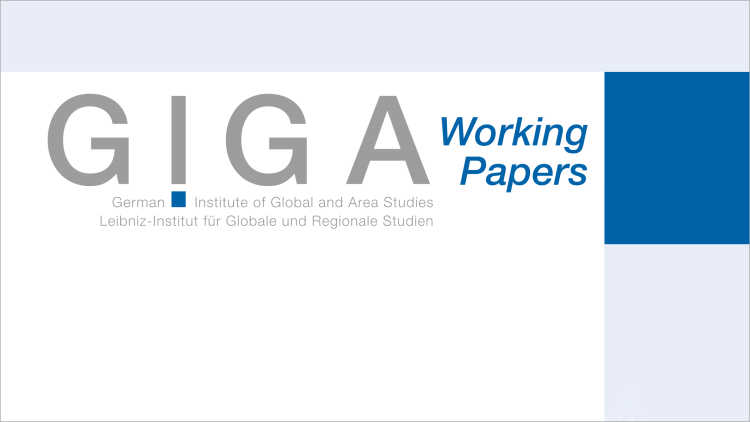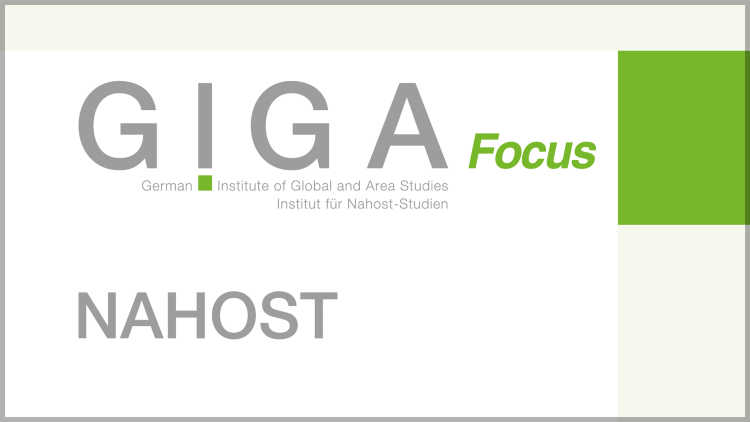- Home
- Publications
- GIGA Focus
- The Comeback of the EU as a "Civilian Power" through the Arab Spring?
GIGA Focus International Edition English
The Comeback of the EU as a "Civilian Power" through the Arab Spring?
Number 2 | 2013 | ISSN: 1862-3581
On 12 October 2012, the European Union was awarded the Nobel Peace Prize for, among other things, “the successful struggle for peace and reconciliation and for democracy and human rights,” as the official press release states.
Analysis
The Nobel Prize organization’s explanatory statement matches the EU’s traditional selfimage as a "civilian power" not only in European affairs but also in its foreign relations. However, when applied to the EU’s policy towards the countries south of the Mediterranean, the civilian power approach exhibits many problems.
The Arab Spring has repoliticized cross-Mediterranean relations. In the 1970s, the EU based its self-image as an actor in international relations on a civilian power approach. The aspirations of an ideal civilian power are based on the promotion of nonviolent conflict resolution, democratic values and social justice. Yet in the decade prior to the Arab Spring at the latest, the EU’s approach towards the Arab world had become very “pragmatic,” meaning that European claims regarding the EU’s progressive foreign policy were purely rhetorical.
Still, a heated, partially ideologically charged debate among scholars – and politicians – on the EU’s self-image continued. The main reason the approach managed to remain on the agenda, despite empirical counterevidence, was that the pre-Arab Spring environment, with its authoritarian regimes, was hostile to a civilian power.
With the Arab Spring, a quasi-experimental situation has emerged; whether the European self-image matches the reality thus needs to be tested. Since the Arab Spring it has certainly become more common for European politicians to use major elements of the civilian power approach on the rhetorical level.
When compared with major empirical developments since the Arab Spring, the civilian power approach does not adequately explain European relations with the countries south of the Mediterranean.
Footnotes
Regional Institutes
Research Programmes
How to cite this article
Beck, Martin (2013), The Comeback of the EU as a "Civilian Power" through the Arab Spring?, GIGA Focus International Edition English, 2, Hamburg: German Institute for Global and Area Studies (GIGA), http://nbn-resolving.de/urn:nbn:de:0168-ssoar-331767
Imprint
The GIGA Focus is an Open Access publication and can be read on the Internet and downloaded free of charge at www.giga-hamburg.de/en/publications/giga-focus. According to the conditions of the Creative-Commons license Attribution-No Derivative Works 3.0, this publication may be freely duplicated, circulated, and made accessible to the public. The particular conditions include the correct indication of the initial publication as GIGA Focus and no changes in or abbreviation of texts.
The German Institute for Global and Area Studies (GIGA) – Leibniz-Institut für Globale und Regionale Studien in Hamburg publishes the Focus series on Africa, Asia, Latin America, the Middle East and global issues. The GIGA Focus is edited and published by the GIGA. The views and opinions expressed are solely those of the authors and do not necessarily reflect those of the institute. Authors alone are responsible for the content of their articles. GIGA and the authors cannot be held liable for any errors and omissions, or for any consequences arising from the use of the information provided.





